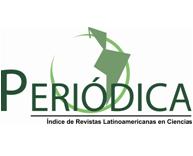PHENOL DEGRADATION VIA PHOTO-FENTON USING A ANNULAR PHOTOCHEMICAL REACTOR
Keywords:
Phenol, treatment, AOPAbstract
The water pollution is one of the main threats and challenges facing humanity today. Everyday human activities introduce contaminants considered refractory in various water matrices. Within these contaminants, phenol and its derivatives represent a significant threat to the environment because of their toxicity, bioaccumulation stability and permanence in the environment for long periods. These compounds are highly toxic, carcinogenic and allergenic, causing considerable damage to human health, besides causing threats to the ecosystem. Therefore, determination and elimination of environment are of great importance to ensure better water quality. Advanced oxidation processes (AOP) have been extensively studied due to their potential for degradation, as alternatives or supplements to conventional treatment processes of wastewater. Hydroxyl radicals generated during the process are highly reactive and unselective, may act in the chemical oxidation of a wide range of substances. For experimental development phenol samples were used in aqueous solution at a concentration of 200 mg L-1. Assays were performed using a photochemical reactor, operating with artificial UV radiation source (80W lamp). The analysis of the concentrations of phenol was performed using High Efficiency Liquid Chromatography (HPLC). The results of the degradation of phenol by Photo-Fenton process were satisfactory, succeeding in reducing the same to 98,82 %.




















